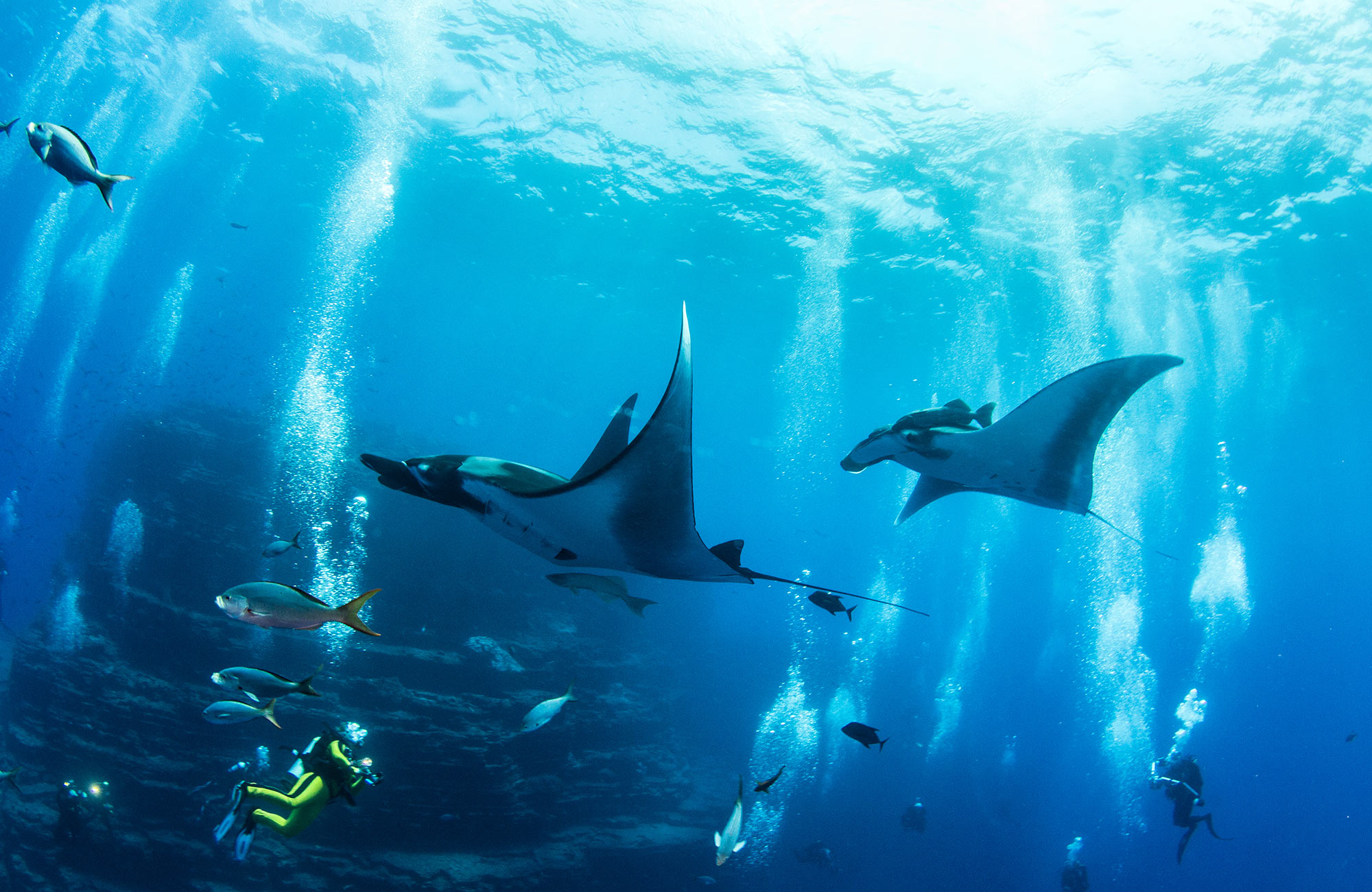Ben jij een echte waterrat die iever onder dan boven water is? Hou je van al het leven onder het zeeoppervlak of maak je je zorgen over de balans in ons ecosysteem? Dan is mariene project echt wat voor jou! Mariene conversatieprojecten houden zich bezig met het herstellen van beschadigde ecosystemen onderwater, met bedreigde diersoorten en het opleiden van de lokale bevolking en overheden. Als vrijwilliger kun jij jouw steentje bijdragen om de onderwaterwereld te beschermen! Met de steeds groter wordende plasticsoep is dit soort vrijwilligerswerk belangrijker dan ooit.
Kom langs en bespreek de mogelijkheden
Maak een verschil voor ecosystemen en zeedieren
71% van onze planeet is bedekt met water, maar het staat onder druk door plastic, overbevissing en een gebrek aan bewustzijn over de schade die we aanrichten. Vrijwilligersprojecten voor mariene conservatie richten zich op het herstellen van beschadigde mariene ecosystemen en het beschermen van bedreigde mariene diersoorten. Als mariene vrijwilliger neem je deel aan onderzoek om inzicht te krijgen in diersoorten en systemen die we nog niet volledig begrijpen.
Of je nu een tussenjaar hebt na school, een meerweekse vakantie neemt, een carrièrepauze hebt ingelast of een verlengde wereldreis maakt, er zijn mogelijkheden om te helpen. Onze projecten zijn altijd op zoek naar vrijwilligers, omdat er belangrijk werk voor je klaarligt. Je levert een belangrijke bijdrage aan essentiële mariene conservatieprojecten wereldwijd, of je nu voor een paar weken of meerdere maanden deelneemt.
Hoe zien mariene vrijwilligerswerkprojecten eruit?
Tijdens jouw vrijwilligerswerk zul je verschillende taken krijgen. Je zult vaak duiken, bijvoorbeeld om te analyseren en te rapporteren wat de staat van het koraalrif is en welk onderwaterleven je er tegen komt. Of je gaat onder water om het koraalrif op te ruimen. Ook kan het zijn dat je de lokale bevolking informeert en opleidt over het koraalrif, de staat ervan en hoe deze zo goed mogelijk te beschermen. Ook is er vaak tijd ingepland in de programma's om andere vrijwilligers wat beter te leren kennen en samen te genieten van de mooie plek waar je je bevindt.
Duiken en vrijwilligerswerk
Om mee te doen met deze vrijwilligersprojecten hoef je geen duikbrevet (PADI) op zak te hebben. Je kunt deze halen op het project, je zult de eerste dagen vooral bezig zijn met de duikcursussen en in de avonden de theorie te studeren voor je PADI. In sommige gevallen is het zelfs goedkoper om jouw duikbrevet op deze manier te halen, dan eerst zelf een losse duikcursus te volgen. Er zijn ook projecten die zelf geen cursussen aanbieden, maar goede contacten hebben met lokale duikscholen, waar je je PADI dan kunt halen voordat je begint aan het project.
Je hoeft nooit veel eigen materiaal mee te nemen om te duiken, je zult altijd het materiaal van het project kunnen gebruiken. Je eigen masker en zwemvliezen meebrengen is vaak wel aan te raden. Hoe vaak je gaat duiken hangt af van het project, maar reken erop dat je het meeste van je tijd onderwater zult doorbrengen als je een project doet dat zich inzet voor de bescherming en het behoud van het mariene leven.
Je krijgt altijd begeleiding bij de eerste paar keren dat je te water gaat (zeker als je jouw PADI nog moet halen). Ook krijg je altijd eerst les over het koraalrif en de werking van riffen en de onderwaterwereld. Mocht je tijdens jouw project behoefte hebben om met iemand te praten, dan kun je ook altijd terecht bij jouw begeleider.
Wat anderen van Mariene vrijwilligersprojecten vonden
Lysanne (28): "Hoe geweldig is het om elke dag te mogen duiken tussen al het mooie leven in de zee! Elke dag zag ik wel weer iets bijzonders. 1x per week deden we een beach- en een ocean cleanup. Het geeft veel voldoening om het strand weer schoon te zien nadat het afval was opgeruimd."
Daniël (25): “Ik heb een supertijd gehad op de Seychellen! Let op: Er is geen stromend water waardoor je maar 1x per 2 dagen mag douchen en je hebt geen internet op het eiland. Dat is misschien even wennen voor toekomstige vrijwilligers, maar ik vond het juist wel passen bij een onbewoond eiland.”
Vragen? Mail ons





